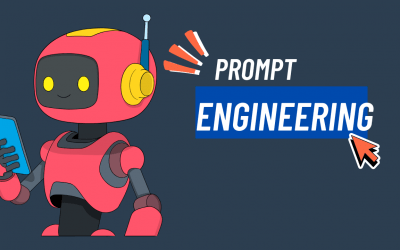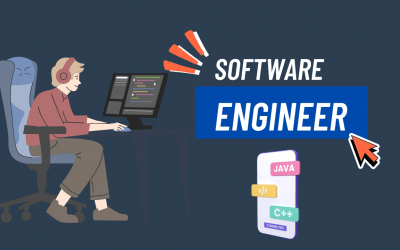As technology continues to advance, students have more options than ever before when it comes to choosing a device to assist them with their studies. Two of the most popular options are tablets and laptops, but which one is better? In this article, we will explore the pros and cons of each device to help you make an informed decision.
Tablets
Tablets have become increasingly popular in recent years, particularly among students. They are lightweight, portable, and offer a touchscreen interface that is easy to navigate. Here are some of the pros and cons of using a tablet for studying:
Pros:
- Portability: Tablets are designed to be ultra-portable, making them an excellent choice for students who are always on the go. You can easily slip a tablet into your bag and take it with you wherever you go.
- Battery life: Most tablets offer excellent battery life, with many lasting up to 10 hours on a single charge. This means that you can use your tablet all day without having to worry about running out of power.
- Touchscreen interface: Tablets offer a touchscreen interface, which is very user-friendly and easy to navigate. This can be particularly helpful for students who are not as comfortable using a traditional keyboard and mouse.
- Access to apps: There are millions of apps available for tablets, many of which are specifically designed for students. These apps can help you stay organized, take notes, and study more efficiently.
Cons:
- Limited functionality: While tablets are great for browsing the web, checking email, and using apps, they may not be powerful enough to handle more complex tasks. For example, if you need to run a complex software program or work with large amounts of data, a tablet may not be the best choice.
- Limited storage: Most tablets come with limited storage space, which can be a problem if you need to store a lot of files or applications. While you can store files in the cloud, this may not be ideal for students who need to access their files offline.
- Limited connectivity options: Tablets are designed primarily for wireless connectivity, which means that they may not have the same connectivity options as a laptop. For example, if you need to connect to a printer or other device via USB, a tablet may not be able to do so.
Laptops
Laptops have been around for a long time and are still the go-to device for many students. They offer more functionality than tablets and can handle more complex tasks. Here are some of the pros and cons of using a laptop for studying:
Pros:
- Functionality: Laptops offer more functionality than tablets and can handle more complex tasks. This makes them an excellent choice for students who need to run software programs or work with large amounts of data.
- Storage: Most laptops come with ample storage space, which is great for students who need to store a lot of files or applications. This also means that you can access your files offline without having to rely on cloud storage.
- Connectivity options: Laptops offer a variety of connectivity options, including USB ports, Ethernet ports, and HDMI ports. This makes it easy to connect to a variety of devices, such as printers, external hard drives, and projectors.
Cons:
- Portability: Laptops are not as portable as tablets and can be bulky and heavy. This can make them more difficult to carry around, particularly if you need to take them with you to multiple classes throughout the day.
- Battery life: While laptops offer decent battery life, they typically don’t last as long as tablets. This means that you may need to carry around a charger with you throughout the day.
- Learning curve: Laptops can be more difficult to use than tablets, particularly for students who are not as tech-savvy.
- Cost: Laptops are generally more expensive than tablets, particularly if you need a high-end model with a lot of storage and processing power.
So, which is better for students?
Ultimately, the answer depends on your specific needs and preferences. If you value portability and ease of use, a tablet may be the better choice. On the other hand, if you need more functionality and storage, a laptop may be the better option.
If you’re still not sure which device to choose, here are a few additional factors to consider:
- Screen size: Tablets typically have smaller screens than laptops, which can make it more difficult to work on complex tasks like writing essays or creating spreadsheets.
- Keyboard: While tablets offer a touchscreen interface, they don’t come with a physical keyboard. This can make typing more difficult and time-consuming, particularly if you’re not used to using a touchscreen keyboard.
- Software: If you need to run specific software programs for your studies, make sure that the device you choose is compatible with them. Some programs may only run on a Windows or Mac operating system, for example.
- Price: While tablets are generally less expensive than laptops, there are still a wide range of prices to choose from. Consider your budget when making your decision.
Conclusion
In the end, both tablets and laptops can be great options for students. Tablets offer portability and ease of use, while laptops offer more functionality and storage. Consider your specific needs and preferences when making your decision, and don’t be afraid to try out both options before making your final choice.
Other Articles
The Art and Science of Prompt Engineering: Crafting the Future of AI Interaction
Beyond Keywords – Defining Prompt Engineering We stand at the precipice of a new paradigm in human-computer interaction. The rise of sophisticated Large Language Models (LLMs), such as GPT-4 and its contemporaries, has shifted our communication with technology from...
What is a Software Engineer
The Architects of Digital Reality Software engineers constitute the fundamental workforce orchestrating our technologically mediated existence. These professionals transmute abstract concepts into functional applications that permeate every facet of contemporary life....
Angular TypeScript: A Comprehensive Guide to Modern Web Development
Introduction to Angular TypeScript Integration Angular's symbiotic relationship with TypeScript represents a paradigmatic shift in modern web development methodologies. This powerful amalgamation emerged from Google's recognition that large-scale applications require...




